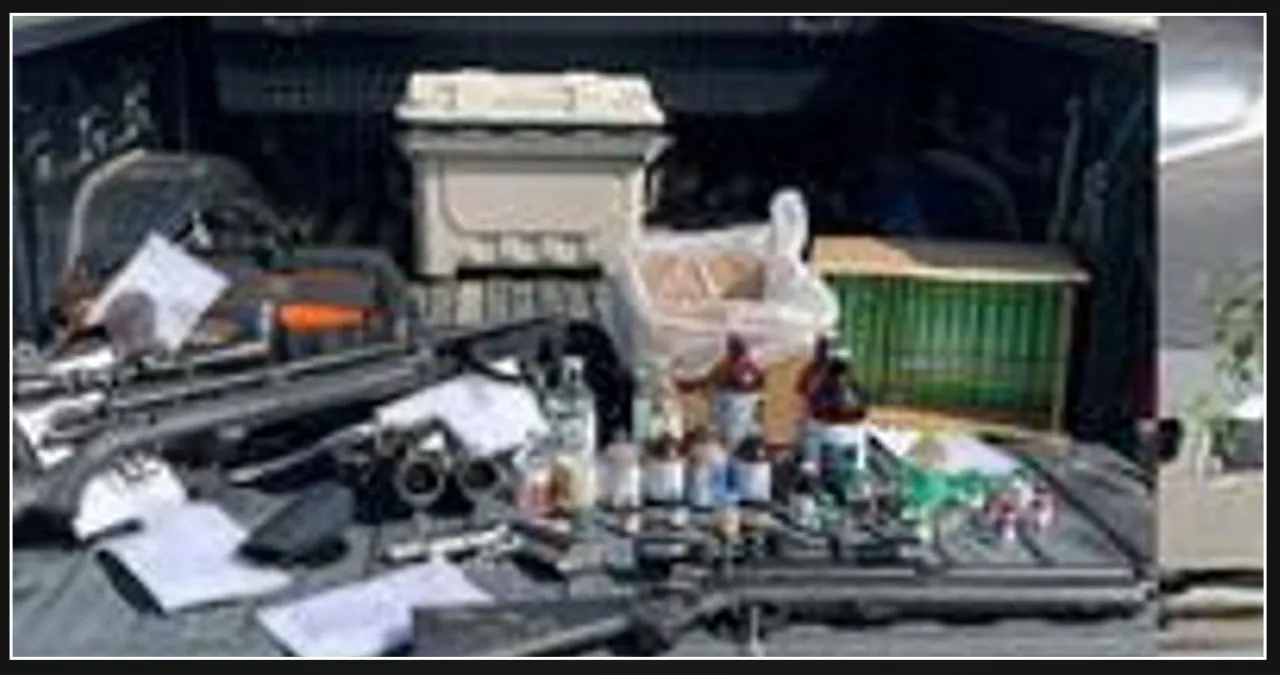Texas Game Wardens have successfully concluded an investigation that resulted in the arrest and conviction of two people involved in the illegal transport of captive white-tailed deer.
A deer breeder from South Texas and his business partner were caught red-handed while trying to smuggle seven deer from a licensed breeding facility in East Texas. Their plan was to transport the deer through Montgomery County to Brazoria and Duval counties, where they intended to release them illegally on private property. This information was provided in a press release from the Texas Parks and Wildlife Department (TPWD).
The case originated when a Montgomery County Game Warden made a traffic stop and found a deer being transported without the necessary documentation or identification. Further investigation uncovered numerous violations of TPWD statutes and regulations, as well as criminal and traffic violations. Both individuals were subsequently arrested and booked into Montgomery County Jail.
The deer breeder was faced with a total of 41 charges, which included one traffic code violation, 11 penal code violations, and 29 deer breeder violations under the Texas Administrative Code and Parks and Wildlife Code. He pleaded guilty to three penal code violations and 29 deer breeder violations. His business partner, on the other hand, was charged with two penal code violations and 28 deer breeder violations, of which he was convicted. In total, they were convicted of 57 deer breeder violations, one alcohol violation, and two dangerous drug violations, resulting in fines amounting to $12,060.
“This case perfectly illustrates the dedication and hard work of Texas Game Wardens by not only uncovering the defendants’ illegal operation but also highlighting the importance of protecting our state’s natural resources,” said Ann Kuykendall, Montgomery County assistant district attorney. “This prosecution sends a clear message: those who knowingly violate these laws will be held accountable.”
The illegal activity was intended to evade disease monitoring and testing requirements, such as failing to conduct ante-mortem chronic wasting disease (CWD) testing and failing to obtain valid transfer permits. The deer, known as “ghost deer” due to the lack of proper identification, were euthanized in accordance with disease testing protocols. This was done because their unknown disease status posed unacceptable risks. Fortunately, the epidemiological investigation revealed no detection of CWD, according to the source.
“Flagrant violations, such as intentionally transferring deer without identifiers, hinder Texas’ ability to identify the source of a deer in the event of a disease detection,” said Col. Ronald VanderRoest, TPWD Law Enforcement Director. “This creates the potential for negative impacts to the health of both captive and free-ranging deer populations, the deer breeder industry, landowners, hunters, and Texas outdoor and rural-based economies, where white-tailed deer hunting has a $9.6 billion annual economic contribution.”

